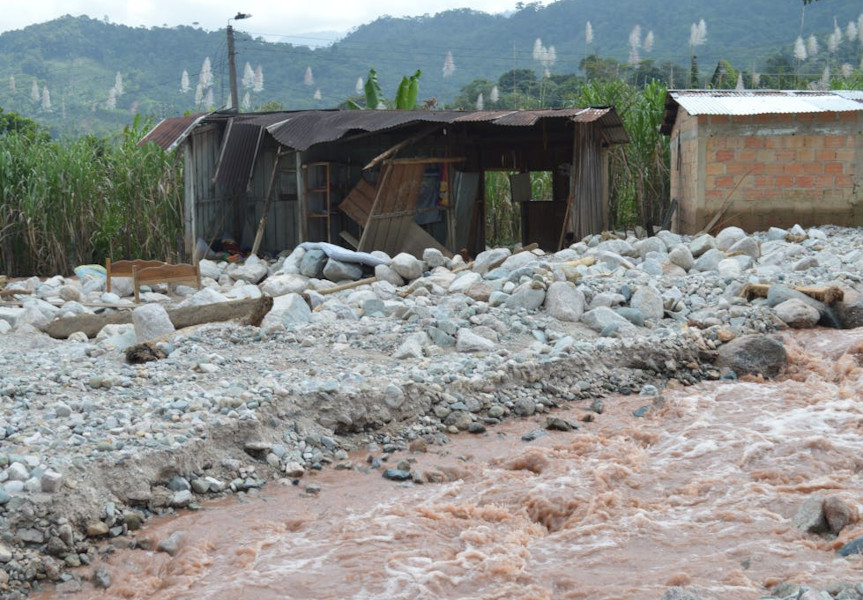
The poor: object of charity or subjects of evangelization?
A poor Combonian missionary among the poor, who should not be objects of charity but subjects of their own promotion”
From Chiara Pellicci
The story of Father Franco Nascimbene
Among the books he has written about his missionary experiences, one is dedicated to the conflicts he has experienced in his 50 years as an evangelizer.
Father Franco Nascimbene, a Combonian missionary, born in Malnate (VA) 71 years ago, has worked in Ecuador, then in Castel Volturno (CE), then in Colombia where he is still.
But this long and differentiated missionary activity is permeated by “that fire on Earth” that “Jesus says he came to bring,” a fire that the missionary reads as being very present in his life experiences, because “the love that Jesus taught us urges us to enter into conflict, to put fire on the earth , to be ready to risk something of our own, so that God’s dream of a society of brothers and sisters may become real, little by little”.
What is it to happiness?
And so the conflicts experienced by the missionary are very distinct: some with rich land-tenants, exploiters and murderers; others with political, paramilitary, even religious authorities; others, however, are internal, experienced alone or with other people.
What is certain is that they were all moved by that fire of which Jesus speaks in the Gospel and by the missionary’s choice of a lifestyle, which comes into direct conflict with the most widespread model of society: “The society that surrounds us,” Father Franco explains, “is telling us in a thousand ways that a person achieves happiness if he can possess more and more things, more and more money, the latest cell phone in circulation, a nice car, a TV with a giant screen, etc. For more than 30 years, however, I have made the opposite choice: not owning a car, nor a cell phone, nor a refrigerator, nor a washing machine, and earning a living with manual labor, as many of the families in my neighborhood do”.
Poor with the poor
This has been his lifestyle and mission for as long as he can remember: to be poor with the poor, doing without the money that, as a missionary, might have come to him from the Global North, so as not to have privileges over his neighbors.
He lived by selling soy milk or pancakes, like any other street vendor, like his people.
In Ecuador
He learned and practiced this way of life in his first mission destination: a suburb of Guayaquil, Ecuador, a country where he stayed from 1983 to 1998.
But since then it has become his way of life, so much so that even today, at the age of 70, he continues in the same way in Colombia.
In concrete terms, Father Franco is a poor man among the poor, choosing to live by their own means, times and rhythms, disregarding large structures (for which a lot of money is needed) as means to evangelize. It is true that a concrete house helps preserve health and ensures better service to the brethren. It is also true that a car makes it possible to get to visit communities faster and ensures transportation of the sick to the hospital. Certainly, the presence of a cook and a laundress who cook and do laundry makes it possible not to lose valuable time for evangelization. And receiving thousands of euros coming in from Europe makes it possible to build facilities that promote the dignity of the needy.
But missionaries are often the only ones who are not poor in the area in which they live: “We had taken a vow of poverty”, Father Nascimbene explains, “and others were living it”.
That is why his ultimate choice was to “stop treating the poor as objects of charity and instead help them become subjects of their own promotion”.
In Colombia
In a neighborhood on the poorest outskirts of the city of Bogota, Colombia, Father Franco would sometimes leave his house with a backpack full of food and go looking for the poorest families.
One day a mother, who had 12 mouths to feed, after rejoicing over what the missionary had brought her, said to him, “Father, near here lives an elderly couple who are too old to work and have nothing to eat: come with me, let’s take something of what you brought us and go and share it with them”.
This episode,” the missionary concludes, ‘shows that ’solidarity is the tenderness of the poor” But – Father Franco is sure – if he himself did not live like them, his eyes would not be able to recognize it.
When the missionaries went to live on a pile
There are two books by Father Franco Nascimbene, a Combonian missionary, that tell of his style of evangelization, without a car, cell phone, washing machine or television.
By dwelling, now a rented hovel in the poorest slum of Bogotá (Colombia), now a bamboo stilts in the illegally sprung neighborhood on the outskirts of Guayaquil (Ecuador).
It is here that the volume “Solidarity is the Tenderness of the Poor” (Cittadella Editrice), with an introduction by Alex Zanotelli, is set.
The other book, more recent and self-published, is titled “I Came to Bring Fire to the Earth” and describes the conflicts that have occurred in Father Franco’s missionary life. From the first one, in a village in Esmeraldas province (Ecuador) where “it was better to be born a cow than to be born a human,” to all the others, totaling 25 in 50 years: “That means only one every two years,” jokes the missionary. Who adds, “Many quiet months passed between conflicts, dedicated to living fraternity with neighbors and a pastoral activity among the people.
Source
- Popoli e Missione
